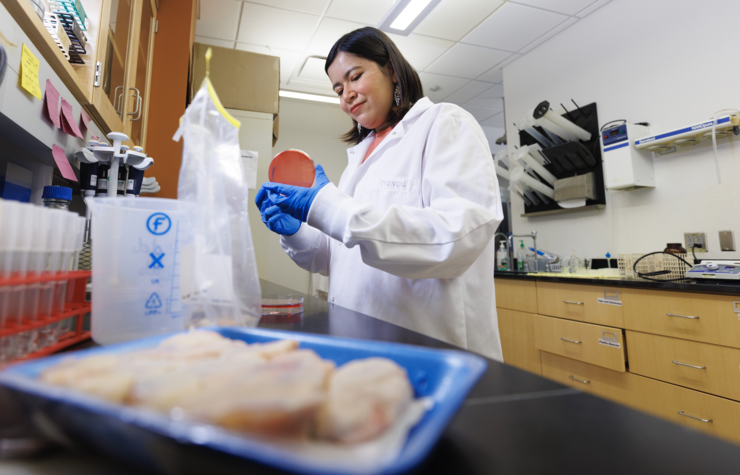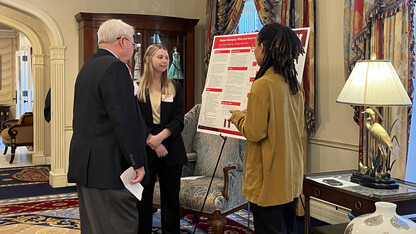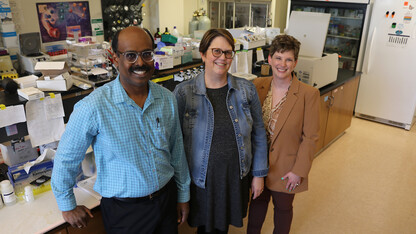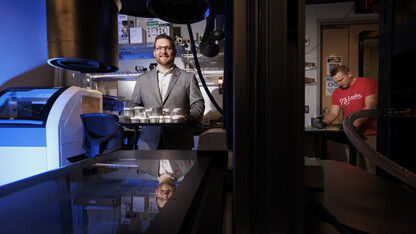· 5 min read
Nebraska U helps Cano Roca pursue her passion for food safety
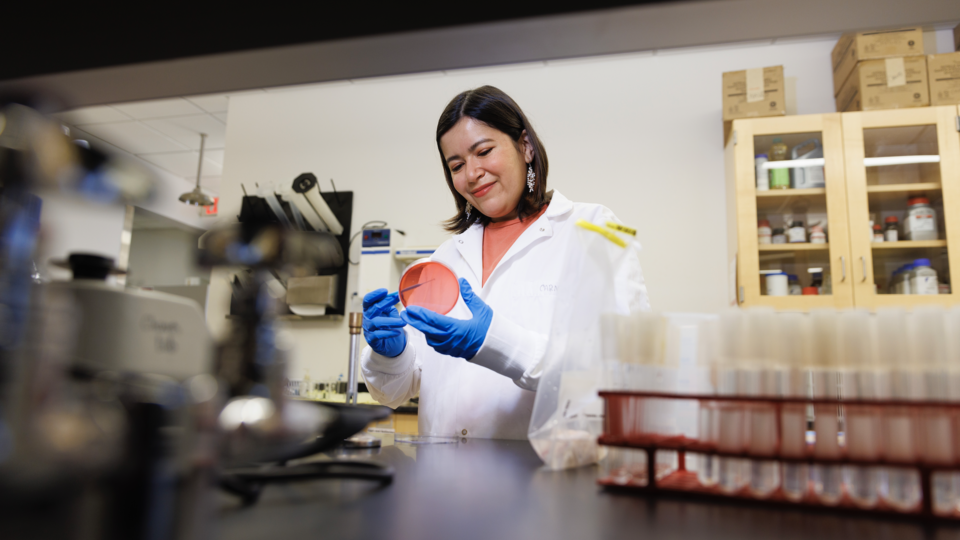
As a problem-solver with an affinity for STEM, it was only natural for Carmen Cano Roca to pursue food engineering as an undergraduate.
Now, she’s completing a doctoral program as a graduate research assistant in the Department of Food Science and Technology at the University of Nebraska–Lincoln and looks to stay close to the community she’s built for herself in the Midwest.
Cano Roca’s interest in food science started at an early age when she had the desire to solve a need for food safety in her home country, Guatemala. She pursued that path and through opportunities, landed at the University of Nebraska–Lincoln where she’s fallen in love with research and the community she’s built for herself. Cano Roca completed her master’s degree at Nebraska with a thesis on commercial probiotics and will defend her doctoral dissertation on the control of Salmonella on poultry products at the end of April.
“In Guatemala, we have challenges with inequality, poverty and food security,” she said. “There are high rates of malnutrition in my country, so when I was in high school, I decided that I would like to help solve these problems. I looked at my skills and at the problems and figured out that I could do food engineering.”
Through her undergraduate program in food engineering, she had the opportunity to complete a six-month research project in Nebraska, which led her to join the master’s program. After three years working in industry, she returned to pursue her Ph.D., a testament to her positive experience in Nebraska.
Cano Roca has always been curious about the way that food production systems work. She enjoys the intricacies of how people get food to their tables every day. She’s worked on various aspects of food production and now focuses on food microbiology and food safety. Her overarching goal is to contribute to food safety but also work towards food security.
“Food safety is important so that people don’t get sick and so that they can truly enjoy their food while gaining the nutritional benefits,” she said. “It’s really interesting to me because it brings in different aspects of the food chain, and I really like how it’s very multidisciplinary and has a wide field of application.”
As part of Byron Chaves’s Microbial Food Safety Lab, Cano Roca studies strategies to control Salmonella bacteria in raw poultry during the slaughter process.
Salmonella is naturally present in chickens, so processors have to use specific processes to lower the number of bacteria and contain the spread to other chickens.
“We worked with a company here in Nebraska that’s proposing a new antimicrobial alternative to help lower the microbial load in raw poultry,” Cano Roca said. “My experiments were to model in my lab what would happen in a poultry facility to see if that intervention would help.”
As the daughter of two engineers, Cano Roca feels at home as a researcher and has enjoyed earning her doctorate. Post-graduation, she’s looking to secure a job in industry or as a researcher in the Midwest.
“I’ve really built a community for myself here,” she said. “The cost of living is reasonable and food production in the Midwest is a big deal. We have a lot of agriculture, poultry and beef here so it’s a good area for my kind of job.”
Cano Roca sees her return to Nebraska as a good endorsement of the positive experience she had as a master’s student.
“I had a really good experience as a master’s student and now as a Ph.D. student, I’ve had great bosses and mentors,” she said. “The Department of Food Science and Technology is also very diverse, we have people from all over the world and from very different backgrounds, not only geographically but also undergraduate backgrounds.”
Cano Roca made a home for herself not only in her department but also in the city of Lincoln.
“As an international student, you’re starting from scratch when you move to a new place,” she said. “So for me, it’s important to understand how to relate to and support other people in a new place. There are many parts of research that can be very isolating, so for me, it’s important to not lose contact with other people, especially those who share some of my experiences like friends in food science, friends from Guatemala and other women in science.”
Community is important to Cano Roca, and she’s immersed herself in opportunities within the university and city. Cano Roca participated in the Graduate Student Assembly, and is currently involved with the Nebraska Food for Health Center, the student board for the International Association for Food Protection and the Guatemalan chapter of the Organization for Women In Science for the Developing World.
Moving forward, Cano Roca is looking forward to continuing working with food safety and security and cultivating her community.
